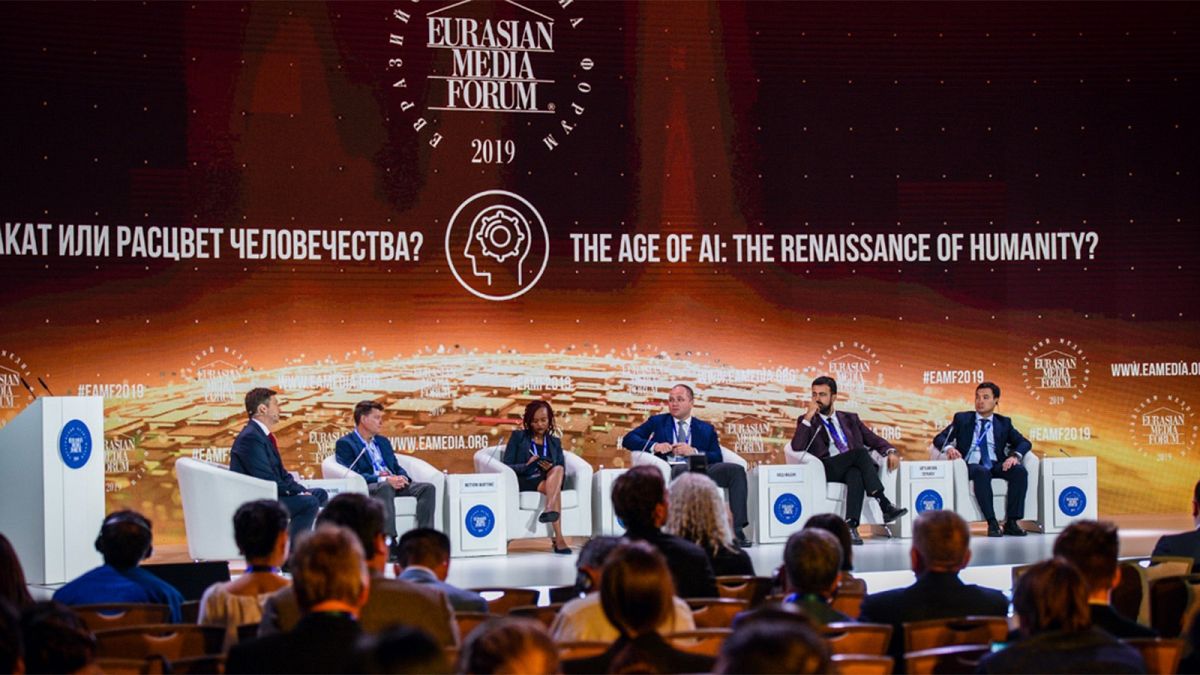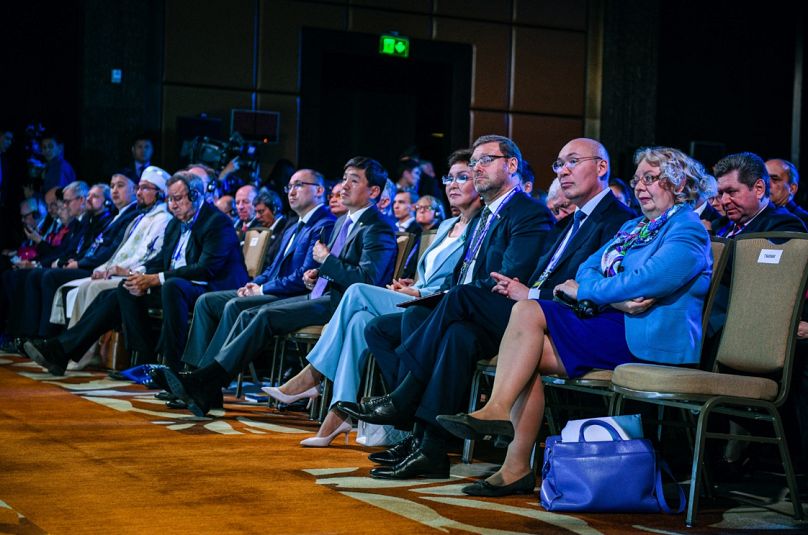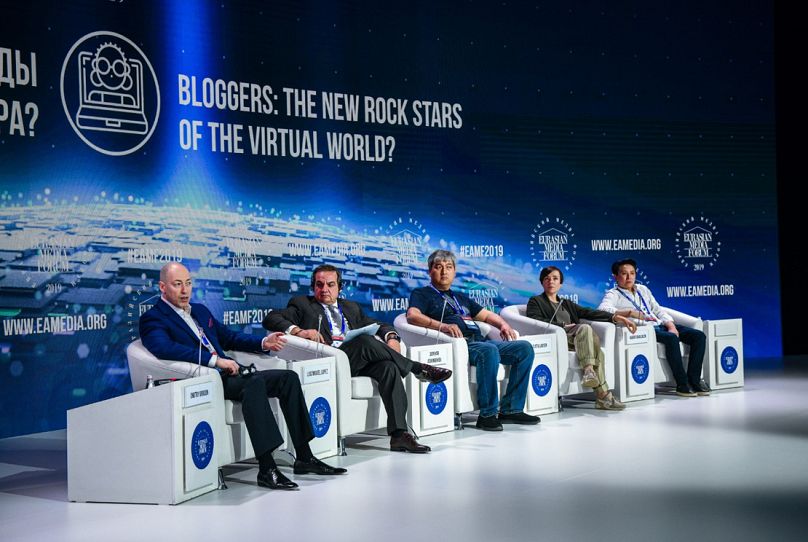World politics, global overconsumption, the arrival of artificial intelligence, and a peek into the blogosphere - the 2019 Eurasian Media Forum Kazakhstan doesn’t shy away from asking big questions. Taking place across three days this May in Almaty, the Forum seeks to tackle the key issues facing the media today, under the umbrella question: ‘The world today: Transforming reality?’
Kazakhstan is an ideal location to discuss this question, Armenian president Armen Sarkissian said in his speech to the Forum. “It is not accident that the ideas of economic cooperation were born here [in Kazakhstan] and became a reality in the post-Soviet area. Eurasian economic cooperation has become a reality which, we hope, will become another bridge to serve the main idea we cherish: friendship of the peoples, cultures, and civilisations.” By facing off experts from East and West, the goal of the Forum is to break down assumptions and stereotypes. This sets the scene to explore how the world is changing at a more rapid pace than ever, and what that means for us.
The overconsumption crisis is not one that respects national boundaries. The debates at the Forum face up to the fact that a growing global population will increase the wealth gap between developed and developing countries. The energy crisis is exacerbating this problem further, and while governments are moving in the direction of appreciating that green energy is the sustainable choice, climate change is a threat that many still do not take seriously. Sustainability is the keyword to ensure food security, but also this is affected by global warming and requires solutions which can only be found through innovation and informed leadership.
"One of the central themes of this forum is a new digital reality” Dauren Abayev, Minister of Informations and Social Development of Kazakhstan, said during his opening remarks in Almaty. “Issues of interference in elections and political processes using digital technologies are actively discussed as well. … These and other problems should be seriously studied by the media community in order to develop a comprehensive response.”
As the event in Kazakhstan is a media forum, the debates are viewed through the lens of the international press. The media has a significant responsibility to present the issues with factual accuracy, and give space and consideration to the differing options. The transformation to a digital-first world is revolutionising how people consume media, with an emergence of outlets which are neither balanced nor fact checked. The Forum sets out with a view that quality media outlets will weather this storm, as there will always be a need for quality analysis from a trustworthy, independent press.
In the blogosphere, however, it’s a brand new world. Facebook, Snapchat, Pinterest, YouTube, Instagram, LinkedIn and Twitter dominate the social media landscape. Bloggers, and social media influencers who make a living posting photos and videos on Instagram and YouTube have very quickly become a new force to be reckoned with, as well as key to brands’ advertising strategies. The Forum discussions reflect how the mechanics behind the influencer economy remains opaque, as authorities are only just starting to realise that this budding industry shouldn’t be left to run unchecked. The traditional media has always kept independent editorial separate from advertisement, but only last September did the UK government start enforcing rules that influencers and bloggers need to declare their sponsorships, to make it clear to viewers what is advertising and what is independent opinion.
The fact that artificial intelligence threatens to take over jobs in certain sectors (driverless cars, factory assembly, food preparation) is a starting point for the Forum discussions, but there are also many areas where automation can lead to significant improvement in people’s lives (farming, development of new medicines, and transparency in business processes). Challenges do remain - the algorithms that power the advancement of this new technology are still made by humans, which means we risk programming our old biases into this new, supposedly neutral, futuristic tool.
Open-minded debate and exploration remains vital as we seek to find solutions to these questions - this is what the Eurasian Media Forum hopes to facilitate. Especially by bringing together thinkers and politicians who may not normally be sat in the same room, the Forum wants to introduce visitors and observers to points of view that they may not have heard before. By doing so, people may even be shaken out of their usual thought patterns. By bringing together East and West to debate without prejudice we can get a full picture of how the world is being transformed.



